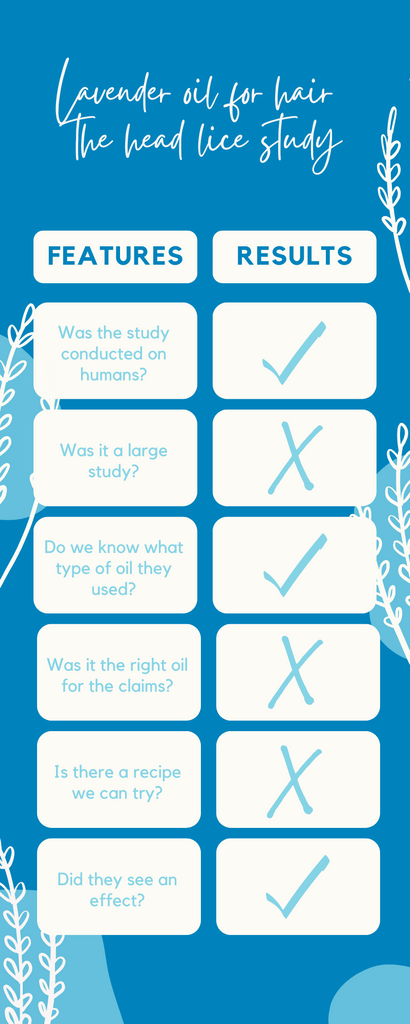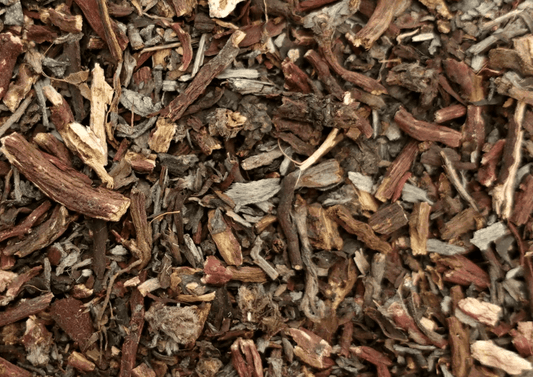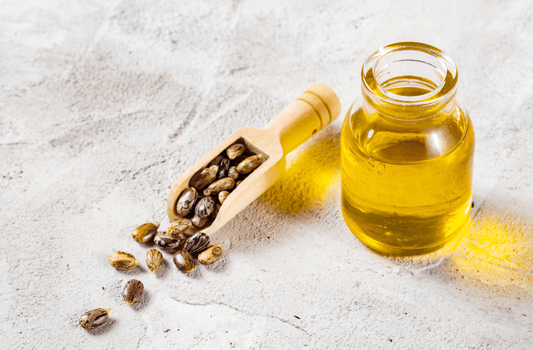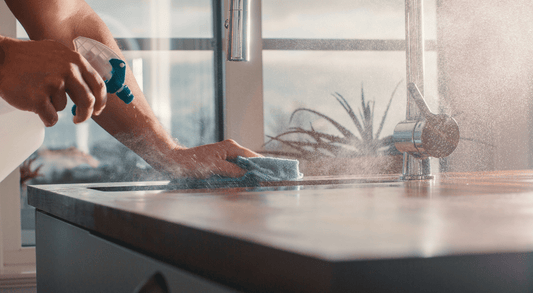Lavender oil, with its soft purple colour and instantly recognisable scent, has been used in folk medicine for centuries. To this day, fans boast its ability to soothe everyday ailments like insomnia and anxiety.
Though it’s popularly used for its aromatherapeutic benefits, the oil has also attracted attention for its healing potential when applied topically. We previously considered whether lavender oil can be an effective aid for burns and wound care, and in this post, it’s time to give lavender oil for hair a good look.
Contents
- Benefits of lavender oil for hair
- Lavender oil for hair growth
- Lavender oil for head lice
- The alopecia study
- Dandruff
- Stress related hair loss
- Conclusion
Potential benefits of lavender oil for hair
Beauty fanatics love using natural oils for hair. Argan oil, rosemary oil, black seed oil… you name it, and someone will likely tell you it’s their number one haircare secret.
When it comes to lavender oil, some of the benefits you’ll find online include:
- Hair growth
- Thicker hair
- Reduced hair loss
- Treats hair lice
- Treats dandruff
Take these at face value, and it seems like lavender oil is the perfect all round hair care. If, like us, you’re a little sceptical of internet claims, you might think the list is a little too good to be true.
Is there evidence to back up the anecdotes? or is it just another passing haircare fad? Let’s look at studies to see what we can truly say about its benefits.

Lavender oil for hair growth
The study often used to back-up lavender for hair growth and thickness was conducted on mice.
The treatment was applied to the experimental animals once a day, 5 times a week, for 4 weeks, and the effectiveness was measured by changes in the number and depth of hair follicles and the hair thickness.
From the results, researchers concluded that lavender oil could stimulate hair growth.
How many people took part in the study?
A big fat zero! They used 90 mice instead.
Which lavender oil did they use?
They don’t tell us explicitly, but since the research was by a French company, and the composition matches, we’re safe to assume it was French lavender.
Did they give a treatment recipe?
Yes, they diluted lavender essential oil to 3% and 5% in jojoba oil, a popular carrier oil.
How much treatment was applied?
0.1ml once per day, 5 times a week for 4 weeks
KEY TAKEAWAY: Since the study was conducted on mice, it only proves that lavender oil can promote hair growth in mice. Not humans.

Lavender essential oil for head lice
They’re itchy, annoying, and the back-to-school nightmare of every parent, but can lavender oil get rid of head lice?
In a 2011 study, this was put to the test. 3 randomized groups were given the following treatments:
- Tea tree essential oil and lavender oil
- Eucalyptus oil and lemon tea tree oil
- A ‘suffocation’ treatment used to kill lice
The crawling and egg-laying stage of hair lice was measured after a single application of the ascribed treatment.
Although, as you can predict, treatment 3 was the most effective, the tea tree oil and lavender oil treatment was also effective.
How many people took part in the study?
92 people, which is a relatively small sample.
Which lavender oil did they use?
Lavender oil and tea tree essential oil. The exact types are unspecified.
Did they give a treatment recipe?
Kind of – we know they used 10% tea tree oil, and 1% lavender oil, but we don’t which carrier oil it was diluted in.
How much treatment was applied?
An unspecified amount was applied once, for 10 minutes, and then washed out with water.
KEY TAKEAWAY: The treatment worked well, but it’s more relevant to tea tree oil than lavender oil for hair.

Lavender essential oil for alopecia areata
Research we looked at for rosemary oil for hair growth, crops up again when it comes to lavender oil benefits.
The study used a blend of rosemary, thyme, cedarwood and lavender essential oils, mixed with a carrier oil. It measured the effectiveness of the mixture for treating alopecia areata, a condition affecting the hair follicle which causes hair loss. The results show it was an effective treatment for hair growth.
It’s important to note that other kinds of hair loss, such as androgenetic alopecia ( or male/ female pattern baldness), were excluded from this study.
How many people took part in the study?
A small sample of 86 patients diagnosed with alopecia areata.
Which lavender oil did they use?
The exact types of each essential oil aren’t specified.
Did they give a treatment recipe?
Yes! It’s:
- Thyme essential oil 1g
- Lavender essential oil 1g
- Rosemary essential oil 1g
- Cedarwood atlas essential oil 1g
- Jojoba oil 26g | 30ml
- Grapeseed oil 190g | 200ml
How much treatment was applied?
A lot! this is the process they followed:
- Massage the mixture into your scalp for 2 minutes
- Keep your hair wrapped in a warm towel
- Repeat every night for 7 months
It’s a lengthy process that, realistically, most people aren’t going to replicate at home.
KEY TAKEAWAY: The study used a mixture of essential oils, so you can’t be sure if the results are down to any particular one. Lavender oil's hair growth properties aren't proven.
Lavender oil for dandruff
There are no studies that prove, or disprove, lavender oil affects dandruff. When this claim is made, it usually draws on lavender essential oil's antimicrobial properties. There's been some research on this topic, which you can find here.
One of the common causes of dandruff is a yeast like-fungus called Malassezia, which causes skin cells to die quickly and shed. If lavender can kill off the fungus, it may be able to prevent dandruff.
But, again, studies that test lavender oil for dandruff are needed for the claim to be valid.
KEY TAKEAWAY: While there’s no evidence that lavender oil can help with dandruff, there is research to suggest it has antifungal properties. Since a yeast-like fungus is a probable cause of dandruff, it may have an effect.

Lavender oil for stress-related hair loss
Here’s another common claim with a tenuous link: stress can cause hair loss, and since lavender oil can ease stress, it must be able to reduce hair loss.
We admit the logic makes sort-of-sense, but let’s unpack it with some science. According to Psychiatrist Daniel K. Hall-Flavin, there are three types of stress-related hair loss:
1. Telogen effluvium - significant stress pushes large numbers of hair follicles into a resting phase, which means the hair can fall out suddenly.
2. Trichotillomania – an anxiety or stress response that involves pulling hair from your scalp, eyebrows, or other areas of your body.
3. Alopecia areata – stress is one of many factors that cause the body’s immune system to attack the hair follicles, causing this type of hair loss.
Now back to lavender oil. One of the most researched properties of the plant is its ability to calm the mind through aromatherapy.
Alongside chamomile essential oil, it’s been found to have a positive effect on depression, anxiety, and stress in older people. And alongside orange essential oil, it’s been found to reduce anxiety and improve mood in a dental office.
It’s not easy to dissect these studies in terms of recipe and application, as they’re not investigating hair loss, and they used aromatherapy rather than direct application.
All we can say here is that, if you’re experiencing stress, which may or may not include hair loss as a symptom, lavender oil could help you relax.
KEY TAKEAWAY: Lavender oil has been found to have a calming effect on the mind. It follows that it might help prevent or ease all the symptoms of stress, which includes hair loss. There are no direct studies on this.

Conclusion: Does lavender oil for hair work?
The benefits sound great, and there’s some evidence to suggest that lavender oil could do some good for the health of your scalp.
That said, like the hair oil fads gone before, the claims are much greater than the evidence.
There's no evidence that lavender essential oil has hair growth promoting effects.
We love lavender essential oil, we wouldn’t sell it otherwise. Although it might not give you your dream hair, we hope you still enjoy its relaxing and stress-relieving aroma.
And if it does give you luscious locks, that’s a bonus we’d love to hear about in the comments!
Continue reading
- Want to learn more about whether essential oils can promote hair growth? Read our in-depth dive on rosemary oil for hair growth
- Like the scent of lavender essential oil? Try our lavender soap recipe
- Can essential oils improve your mood? Find out more!



